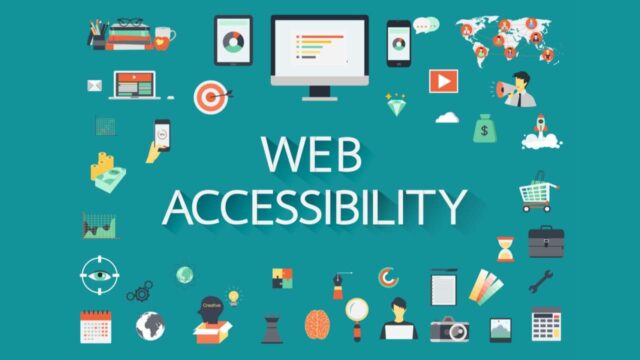In today’s digital age, having a robust online presence is essential for any business. However, creating a website that is accessible to all users, including those with disabilities, is often overlooked. Web accessibility is not just a moral obligation; it’s also a smart business strategy that can enhance your brand reputation, increase your reach, and improve user experience. Here’s why web accessibility should be a priority for your business website.

Table of Contents
Toggle1. Expanding Your Audience Reach
One of the most significant benefits of web accessibility is the ability to reach a wider audience. According to the World Health Organization (WHO), over 1 billion people worldwide experience some form of disability. This includes visual impairments, hearing loss, cognitive disabilities, and motor impairments. By ensuring your website is accessible, you make it easier for all users, including those with disabilities, to engage with your content and services. This inclusivity can significantly expand your customer base and enhance your market share.
2. Enhancing User Experience
Web accessibility goes hand-in-hand with user experience (UX). An accessible website is designed with usability in mind, benefiting all users—not just those with disabilities. Features such as clear navigation, alternative text for images, and easy-to-read fonts improve the overall experience for everyone. When users can easily access and navigate your website, they are more likely to stay longer, explore more pages, and ultimately convert into customers.
3. Compliance with Legal Requirements
In many countries, web accessibility is not just a best practice but a legal requirement. Laws such as the Americans with Disabilities Act (ADA) in the United States and the Equality Act in the UK mandate that businesses make their services accessible to all users. Failing to comply with these regulations can lead to legal consequences, including lawsuits and fines. By prioritizing web accessibility, you mitigate the risk of legal issues and demonstrate your commitment to inclusivity.
4. Improving SEO and Search Engine Rankings
Web accessibility practices often align with search engine optimization (SEO) techniques. For example, using descriptive alt text for images not only helps visually impaired users but also improves your site’s search engine visibility. Additionally, accessible websites typically have cleaner code and better structure, which can enhance loading speeds and overall performance—factors that search engines consider when ranking websites. Thus, investing in accessibility can lead to improved SEO and higher search engine rankings.
5. Building a Positive Brand Reputation
Brands that prioritize accessibility send a powerful message about their values and commitment to inclusivity. By making your website accessible, you demonstrate to your customers that you care about all individuals, regardless of their abilities. This can enhance your brand reputation and foster customer loyalty. Businesses that embrace diversity and inclusivity are more likely to attract and retain customers who appreciate these values.
6. Gaining a Competitive Advantage
As the focus on accessibility grows, businesses that neglect it risk falling behind their competitors. By making your website accessible, you differentiate yourself from competitors who may not have taken the same steps. This competitive advantage can lead to increased customer loyalty and positive word-of-mouth marketing, further enhancing your business’s reputation and bottom line.
7. Positive Impact on Conversion Rates
Accessible websites often see improved conversion rates. When users find it easy to navigate your site, understand your content, and complete desired actions (such as signing up for newsletters or making purchases), they are more likely to convert. Studies have shown that businesses that prioritize accessibility can experience higher conversion rates, ultimately boosting revenue.
Conclusion
Web accessibility is not merely an option; it is a necessity for businesses aiming to thrive in a digital world. By creating an accessible website, you expand your audience reach, enhance user experience, comply with legal requirements, improve SEO, build a positive brand reputation, gain a competitive advantage, and increase conversion rates. Embracing accessibility is not only the right thing to do but also a smart business strategy that can lead to long-term success. Invest in web accessibility today, and ensure that your business is welcoming to all users, regardless of their abilities.


No responses yet